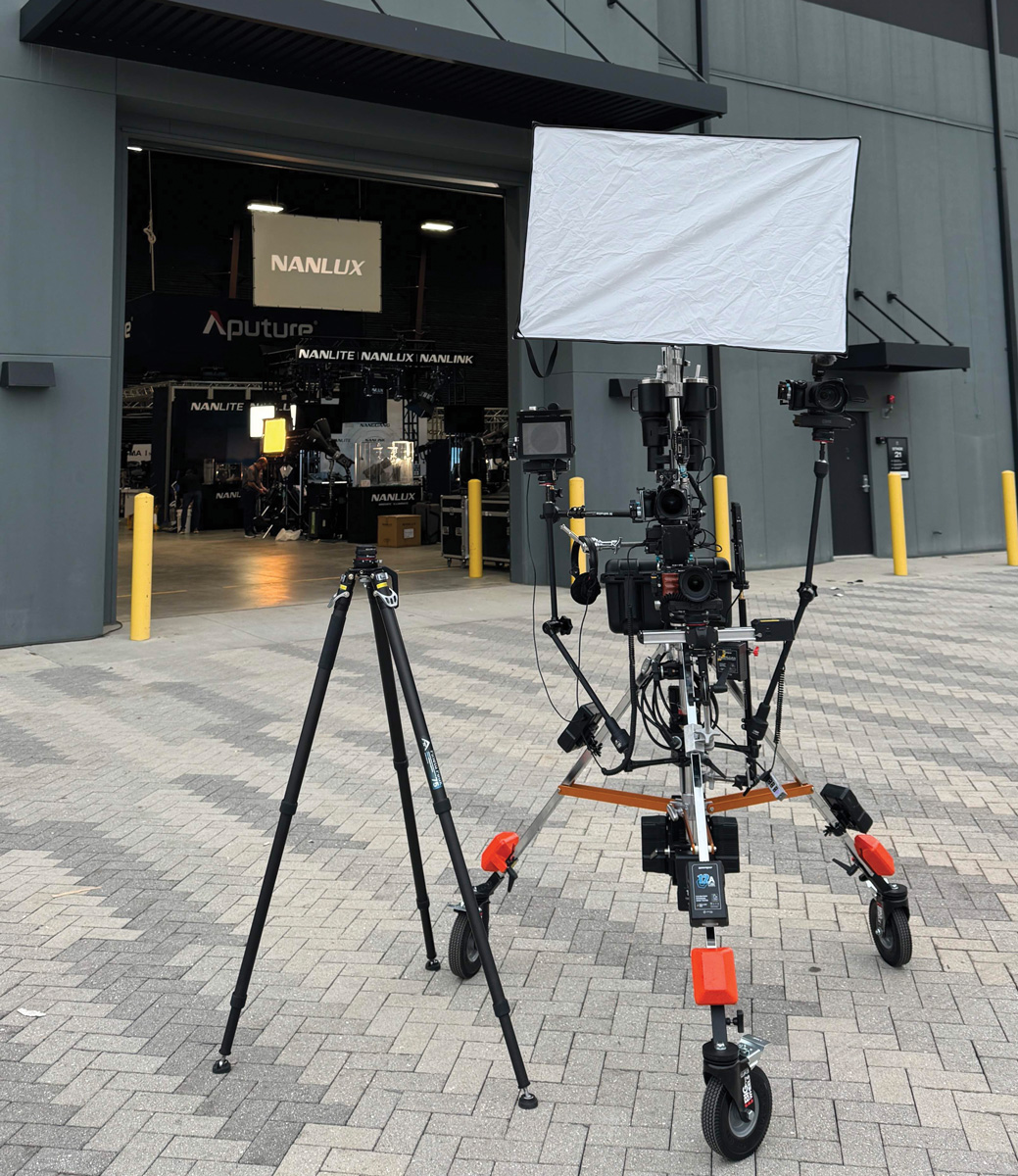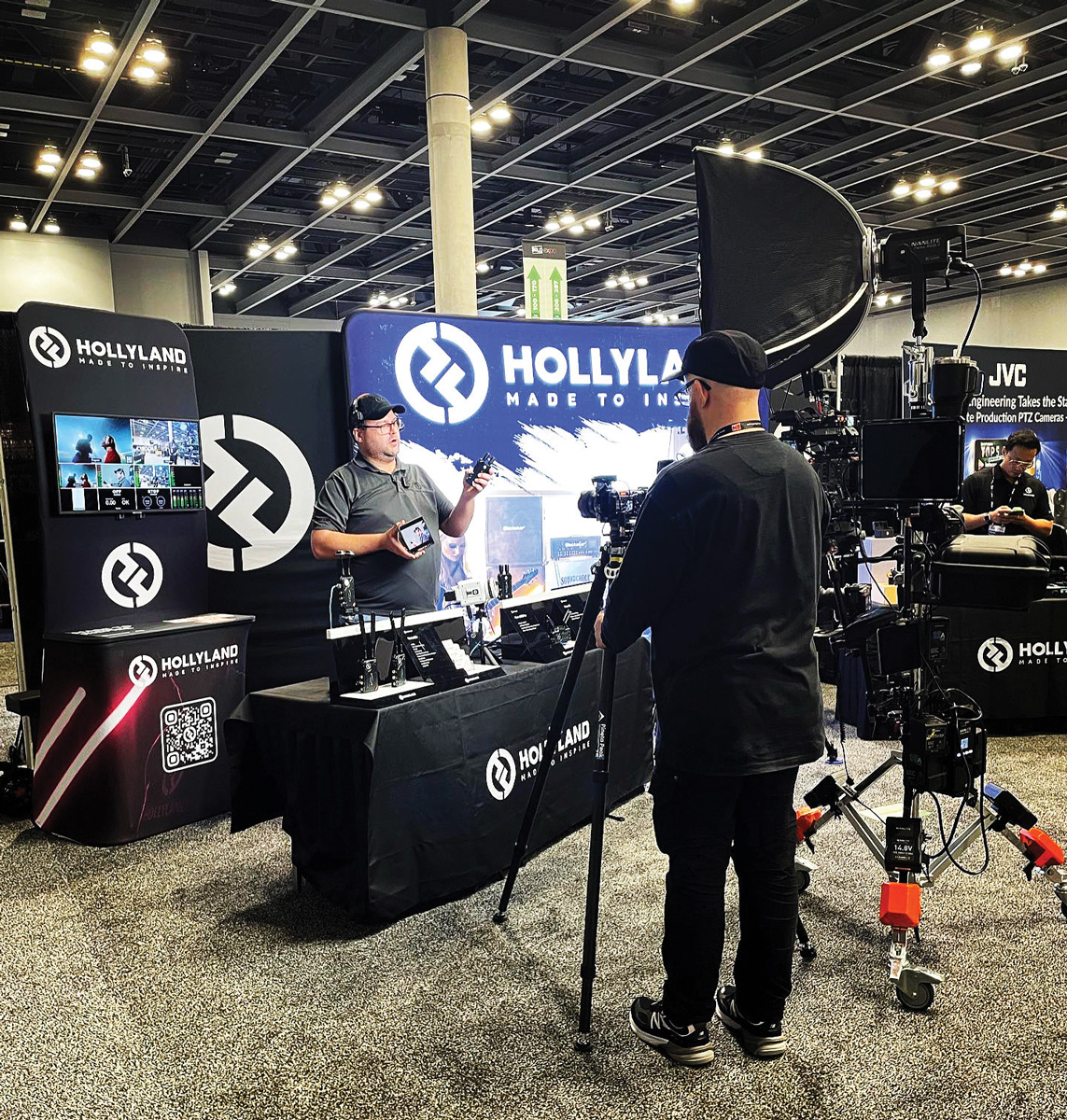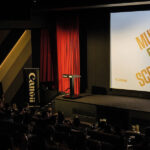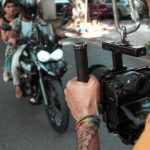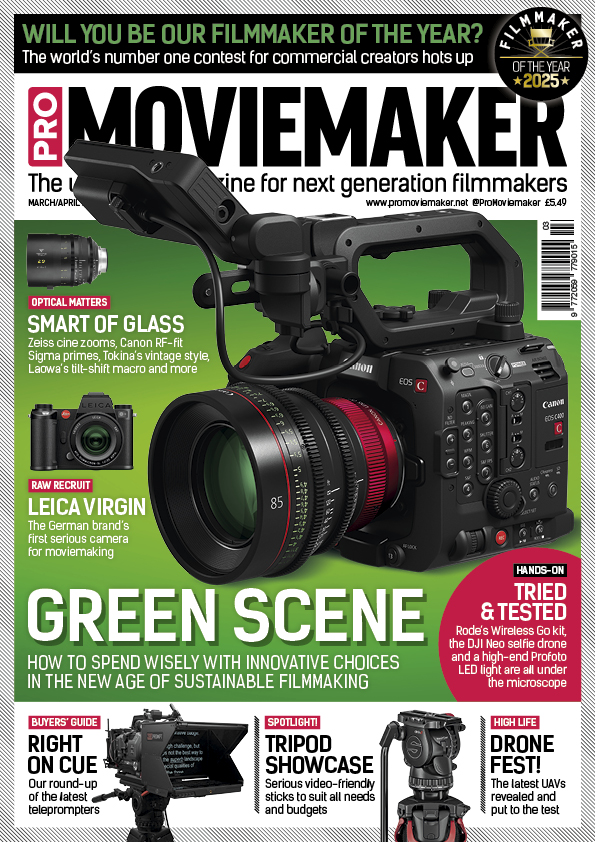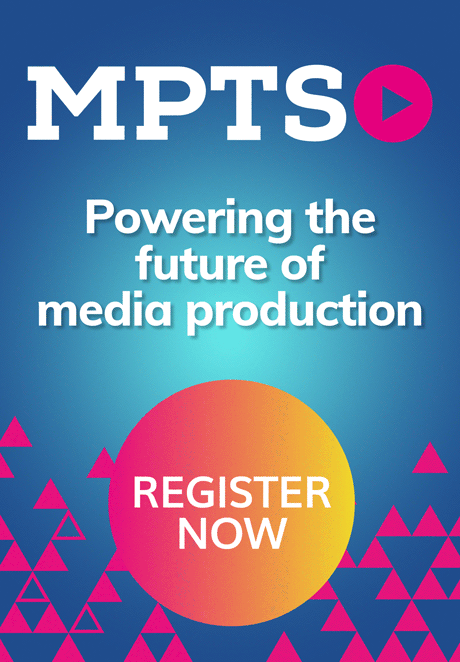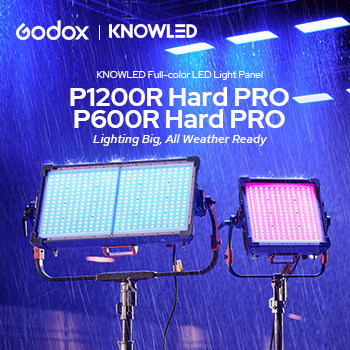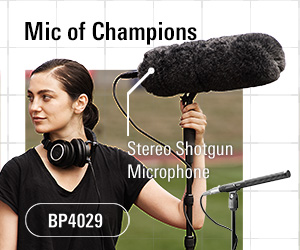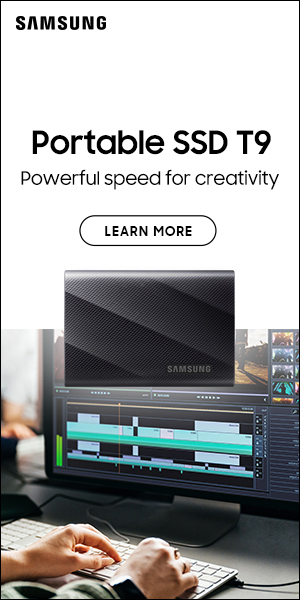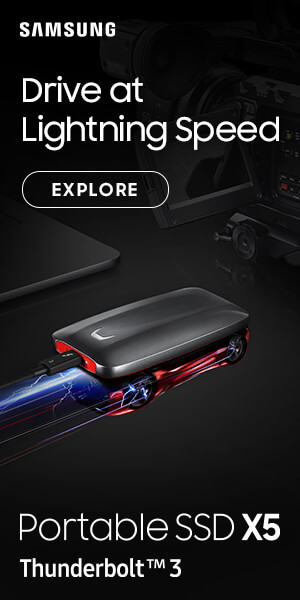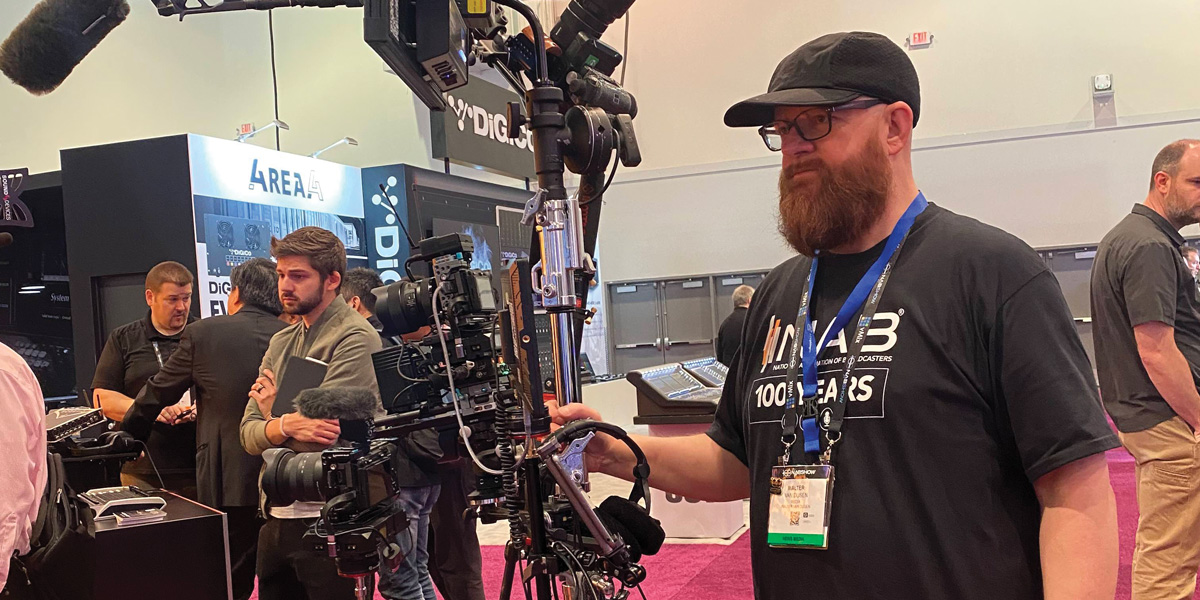
One-Man Band and His Mobile Youtube Studio
Posted on Jan 23, 2024 by Samara Husbands
Roll up, roll up! It’s the single-person shooter using a custom wheeled rig to create his own niche of fast interviews at trade shows
If you’ve ever tried to make video content at trade shows then you’ll know it can be a bit of a logistical nightmare. To get decent results, you need to cart around so much more than a camera and lens.
You also need some seriously pro audio kit, a tripod, decent-size LED soft light, light stand, monitor, spare lenses, wireless audio kit and serious battery power. Plus some way of transporting them around and assembling it all at speed, as often the time pressures are significant.
US-based YouTube content creator Walter van Dusen spends lots of time at tech trade shows, including NAB in Las Vegas, Cine Gear Expo in California and B&H Bild Expo in New York.
So to get consistently high-quality results, van Dusen uses a custom-designed ‘Rolling Interview Stand’. It’s a rolling light stand which allows him to operate effectively by himself and capture lots of interviews in a day – as it’s fast to get the camera rolling.
A driving factor in van Dusen’s approach to interviews comes from a genuine desire to stay up to date on the latest technology, using that knowledge to educate others. He talks to key industry players about the latest kit rather than in a vlog-style which focuses on himself.
“I don’t think these videos should be about me; they should be focused on the company’s spokesperson, with soft direction from me to get the experience on camera for people who really want to learn about the gear,” he reveals.
“I’m trying to provide an in-person experience via my interviews, but being at the show is much better in my opinion. The goal of my trade show interviews is to show the audience that going to an in-person meeting – and getting the chance to be hands-on with the equipment and ask questions to manufacturers directly – is something that they should consider for themselves.”
Custom designing his workflow for the cart became a labour of love for van Dusen, allowing him to perfect both form and function into a single, seamless operation that allows him to work quickly and effectively.
The rig has been modified and fine-tuned into a complete studio that uses a hefty light stand with weights mounted around the bottom to stop the kit toppling over. Near these are chunky V-Lock batteries to keep the centre of gravity low and power all the electronic kit.
Locks on the wheels prevent it from being knocked and rolling off during shots.
Magic arms clamp on and supply the mounting points for up to four different cameras and mounts for boom mics. On top of the stand sits a large LED light, either a sizeable panel light or a COB LED with a softbox.
There are mounts for large and small monitors to allow van Dusen to see what’s being filmed, depending on how many cameras are in use. And sometimes he takes a second tripod with him to get a different angle or to use with wireless lav mics.
With a background in stills, he was prepared for the shooting and lighting components of the cart, but realised early on that audio quality would require special attention.
“Viewers have varying tolerances when it comes to video, but bad audio will turn everyone off,” he says. “I knew I needed something compact and easy to use that would also sound great in all these circumstances, which is what led me to the Sound Devices MixPre series.”
He uses a range of mics – from wireless lav to XLR on a boom, even camera-top DSLR style – which feed into a Sound Devices MixPre-3 II portable recorder.
The set-up allows him to quickly roll up to a booth, shoot an interview in one take, and have multiple camera angles and high-quality sound. “What’s great about the MixPre-3 II is that it was easy to learn in the wild,” he explains. “I didn’t come from an audio background, but it was clear how important it would be for these videos so I knew I had to learn it quickly. Once the MixPre-3 II was integrated, my audio immediately sounded much better.”
One of the most important features of the MixPre-3 II is support for 32-bit float audio, which is very useful when having to navigate the dramatic dynamic ranges of sound within a loud, crowded trade hall.
“It just makes things that much more efficient because I don’t have to ride the gain dials when I’m recording an interview,” he says. “Ultimately, it gives me better control of the end product and ensures that the audio will sound great no matter what is going on in the hall around me. The days of me blowing my audio out are long past since I started using it.
“Everyone needs professional-quality video that is shot well, with good lighting and great sound, all done quickly. I think my rolling studio is something that could be used by anyone who’s willing to invest in doing it right – and what’s more, the applications are endless.”
Originally published in the Jan/Feb 2024 issue of Pro Moviemaker.

